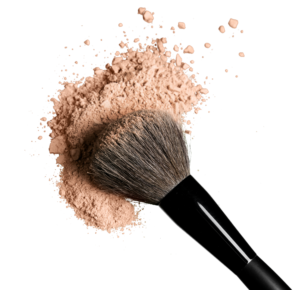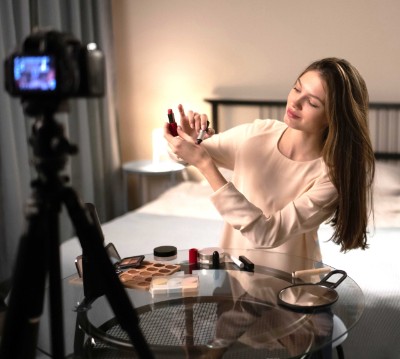In the constantly shifting landscape of digital marketing, influencer marketing has emerged as a powerful force, reshaping industries and redefining the way businesses connect with consumers, creating a seamless route from social media entertainment to product engagement. Among the sectors experiencing a significant impact, the beauty and wellness industries stand out as prime examples of the transformative power of influencer marketing. This article explores the symbiotic relationship between influencers and these industries, delving into the reasons behind their success, the challenges they face, and the future trends that will continue to shape this dynamic partnership.
The Rise of Influencer Marketing
In the digital age, social media platforms have become the new marketplaces, and influencers are the trusted guides leading consumers through the vast array of products and services. The beauty and wellness industries, in particular, have harnessed the potential of influencer marketing to a remarkable extent. This rise can be attributed to several factors:
Authenticity and Relatability: Beauty Influencers often build their following by sharing authentic, relatable content. Beauty influencers know their audience, their likes and dislikes, and can tailor their message about a product to highlight how it aligns with their preferences and values. Unlike traditional advertising, which can feel distant and impersonal, influencers create a sense of connection with their audience, fostering trust and loyalty.
Expertise and Credibility: Many influencers in the beauty and wellness niches are experts in their fields, whether they’re makeup artists, skincare specialists, fitness trainers, or nutritionists. Their knowledge and credibility lend weight to their recommendations, making followers more likely to try the products or services they endorse.
Visual Appeal: Beauty and wellness are inherently visual industries, and influencers excel at creating visually appealing content. Whether it’s a makeup tutorial, a skincare routine video, or a workout demonstration, influencers leverage the power of visuals to showcase products and experiences in a compelling way.
Influencer Marketing Impact on Beauty Industry
The beauty industry, in particular, has witnessed a revolution through beauty influencer marketing. Here’s how it has left an impactful mark:
Product Endorsements and Reviews: Beauty influencers play a crucial role in beauty product discovery for their followers. Through sponsored posts, reviews, and tutorials, they introduce their audience to new beauty products, sharing their experiences and recommendations. This has shifted the balance of power from traditional beauty brands to a more democratized landscape where smaller, niche brands can thrive with the right influencer partnerships.
Trends and Virality: beauty Influencers have the ability to turn a product into an overnight sensation. A well-placed endorsement or a makeup look can spark a trend that spreads like wildfire across social media platforms. This has given rise to the concept of “viral beauty,” where products gain popularity rapidly through online buzz generated by influencers and their followers.
Diverse Representation: beauty influencer marketing has also played a pivotal role in challenging and reshaping beauty standards. By promoting diversity and inclusivity, influencers have encouraged brands to expand their product lines and marketing strategies to cater to a broader range of skin tones, body types, and beauty preferences.
Influencer Marketing Impact on Wellness Industry
While the beauty industry has reaped significant benefits from beauty influencer marketing, the wellness industry has not been left behind. Influencers in the wellness space have contributed to the industry’s growth in various ways:
Fitness and Nutrition Guidance: Wellness influencers, often with backgrounds in fitness or nutrition, share their expertise through workout routines, meal plans, and lifestyle tips. This guidance resonates with followers seeking healthier lifestyles, driving interest in fitness products, nutritional supplements, and wellness services.
Mental Health Advocacy: The wellness movement extends beyond physical health to include mental and emotional well-being. Wellness Influencers openly discussing their mental health journeys and sharing coping mechanisms have contributed to the de-stigmatization of mental health issues. This has prompted the wellness industry to prioritize products and services that address the holistic well-being of individuals.
Lifestyle and Product Recommendations: Wellness influencers often share their daily routines, favorite products, and self-care practices. From meditation apps to skincare products to fitness equipment, these recommendations influence follower behavior and purchasing decisions, creating new opportunities for businesses in the wellness sector.
Challenges and Criticisms of Beauty and Wellness Influence Marketing
Despite the undeniable impact of influencer marketing on the beauty and wellness industries, it is not without its challenges and criticisms.
Authenticity Concerns: As the beauty influencer marketing landscape has grown, concerns about authenticity have arisen. Some influencers face criticism for promoting products solely for financial gain, potentially compromising the trust they have built with their audience. Striking a balance between sponsored content and genuine recommendations is crucial for maintaining credibility.
Oversaturation and Homogeneity: The popularity of influencer marketing has led to oversaturation, with countless influencers vying for attention in the same niches. This can result in a homogenization of content, making it challenging for brands to stand out and for consumers to distinguish between genuine recommendations and promotional content.
Future Trends in Beauty Influencer Marketing
Looking ahead, influencer marketing in the beauty and wellness industries is poised to evolve further, driven by emerging trends:
Beauty and Wellness Micro-Influencers and Niche Markets: Beauty and Wellness Brands are increasingly turning to micro-influencers—individuals with smaller but highly engaged followings—to target specific niche markets. This trend allows for more personalized and authentic connections between influencers and their audiences.
Virtual Try-On Experiences: Advancements in augmented reality (AR) technology are shaping the future of beauty and wellness influencer marketing, particularly in the beauty industry. Virtual try-on experiences allow followers to virtually test products, such as makeup or skincare items, before making a purchase, enhancing the online shopping experience.
Sustainability and Conscious Consumerism: Influencers are playing a pivotal role in promoting sustainability and conscious consumerism. Followers are becoming more discerning, seeking influencers who align with their values and advocate for eco-friendly and ethical products.
Influencer Marketing Strategy for Beauty and Wellness
Implementing a successful influencer marketing strategy in the beauty and wellness industry requires careful planning and execution. Here are some key elements to consider:
Define Your Goals: Begin by clearly defining your objectives. Are you looking to increase brand awareness, drive sales of a specific product, or promote a wellness event? Understanding your goals will shape your influencer selection and campaign strategy.
Identify the Right Influencers: Select influencers whose values, aesthetics, and audience align with your brand. Micro-influencers, with smaller but highly engaged followings, can be particularly effective for niche products or services.
Collaborate on Authentic Content: Encourage influencers to create content that authentically integrates your products or services into their lives. Avoid overly scripted or promotional content, as authenticity is key to gaining trust with their followers.
Leverage User-Generated Content: Encourage influencers’ followers to create and share content related to your brand. User-generated content not only expands your reach but also adds an element of social proof to your marketing efforts.
Monitor and Measure: Implement tracking tools and metrics to measure the success of your influencer campaigns. Key performance indicators (KPIs) may include engagement rates, click-through rates, conversion rates, and return on investment (ROI). Analyzing campaign data will help refine future strategies for better results.
Maintain Transparency: Ensure beauty influencers disclose their sponsored content appropriately, adhering to advertising guidelines and ethical standards. Transparency builds trust with consumers and avoids potential legal issues.
Hiring a Influencer Marketing Partner to Help
In the highly competitive beauty industry, partnering with a specialized influencer beauty marketing specialist can be a strategic move. Here’s why:
Expertise: Beauty influencer marketing agencies have industry knowledge and expertise, making them adept at identifying suitable influencers and trends.
Strategy and Execution: These agencies develop tailored campaign strategies, handle execution, and track performance.
Negotiating Power: They can negotiate influencer contracts, compensation, and manage relationships effectively.
Compliance: Agencies ensure compliance with advertising regulations and disclosure requirements.
Measurement: They use analytics for ROI measurement and provide data-driven insights.
Scalability: Agencies can adapt to your campaign scale, offering flexibility.
When hiring, research agencies with a proven beauty industry track record, aligning with your brand’s values. Working with the right agency can amplify your influencer marketing impact, navigating competition, and achieving marketing goals efficiently.
In conclusion, the impact of influencer marketing on the beauty and wellness industries is profound, reshaping consumer behavior, challenging industry norms, and driving innovation. As influencers continue to play a central role in shaping trends and consumer preferences, the dynamic relationship between influencers and these industries will undoubtedly continue to evolve. Striking a balance between authenticity, transparency, and ethical considerations will be key to ensuring the continued success and positive impact of influencer marketing in the realms of beauty and wellness.

